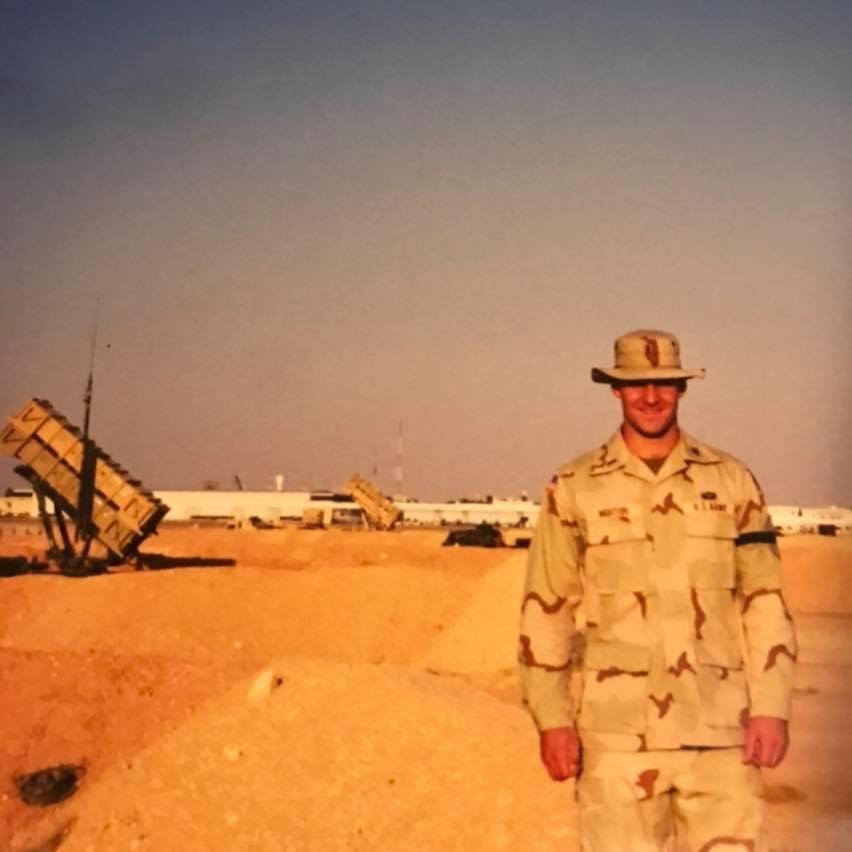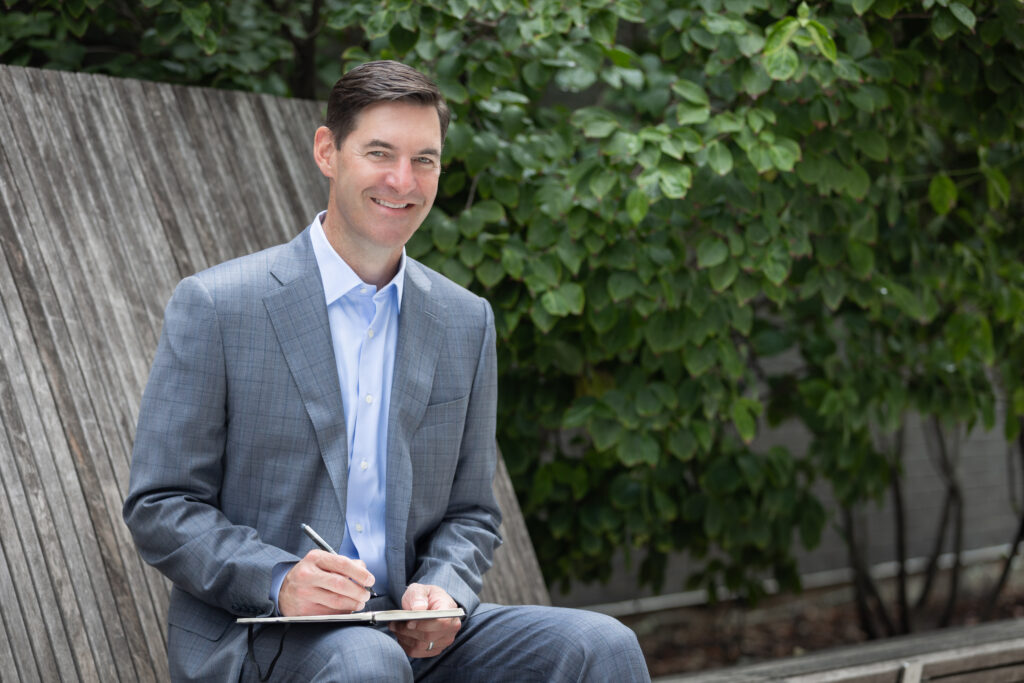Dear Reader,
The first dramatic pivot of my career happened in the summer before my senior year of college, in the rain, staring at a military tank. I was at Ft. Lewis, WA attending a four-week-long ROTC training with a thousand other cadets. It was branch orientation day, where all the branches of the Army (Infantry, Armor, Quartermaster, Military Police) made their pitch for us to choose their path when we became commissioned officers.
Two weeks prior, I had taken the LSATs. This was in following my plan to defer my military service, go to law school, and become an Army lawyer. History degree, law school, desk job. That was the path.

However, sitting in those bleachers and staring at that tank, I thought about a change. I decided right then that if I was going to wear the uniform, it was going to be in a combat arms branch. When in the Army, be in the Army, right? Law school would always be there. The opportunity to lead a platoon as a 22-year-old lieutenant had a shelf life. It felt like a simple shift in mindset at the time, but that simple decision to do ‘this’ and not ‘that’ has been one of the most positive, consequential decisions of my life.
Embrace the Suck
I believe one reason the military creates such great leaders goes beyond the training and responsibility that young soldiers receive during their service. It has a lot to do with the cliché of “Embrace the Suck”. In other words, recognize that things are going to go bad sometimes. Just because the situation went sideways does not remove the need for a leader to be engaged, and even joyful. Things will go bad, but we will get through this.
My sideways experience started immediately after I was commissioned into the Air Defense Artillery and was sent to my first role as a platoon leader. Just before graduating from my Officer Basic Course, my instructor offered my class this insight:
“You may want to be assigned to the best, most high-speed unit in the Army so you can shine. My hope for you is that you are assigned to the (crappiest) platoon the Army has ever seen; and you make it better.”
It may not have been the worst unit, but my first assignment was to a PATRIOT missile battery that was struggling under the leadership of a commander who was in over his head. We were preparing for a deployment to Saudi Arabia, and junior leaders were frustrated with the seriousness of the mission and the lack of focus from the commander. I had no experience. I was probably in over my head myself. But I had to embrace the situation. I leaned on my platoon sergeant and my fellow lieutenants to figure out how to meet the training standards and return home from the deployment safely.
Reflecting on that time now, I remember the challenges. I also vividly recall the laughter, the relationships, and the growth that happened for all of us in that time. One year and a successful deployment later, I could no longer look at the future and say that things would always be the same. There would be change. Sometimes it would suck. But through it all, I would grow. Since then, as an advisor, investor, husband, parent, board president, you name it, I have seen change as something to navigate and lead through, not fear.
Tragic Optimism
One outcome of the recent pandemic era that baffles me is a persistent resistance to change or an expectation that situations could and should remain the same. If anything, I would have thought that after the dramatic events of the last three years, people would believe that in the short term, anything can happen. But apparently, humans are not wired that way.
In his recently published book Master of Change, Brad Stulberg writes about how our culture prioritizes stability despite the constant forces of change. “Clinging to an illusion of permanence, hoping that we won’t be struck by change, that we’ll stay more or less the same, is misguided at best and leads to suffering at worst.” We expend an extraordinary amount of energy on resistance instead of embracing the growth and opportunities that come from change.
I see the “clinging” that shows up in investor behavior all the time. Here are some ways investors resist change and seek stability:
- Searching for a “safe 5%” when interest rates are near zero.
- Looking for guarantees through products like annuities.
- Buying only stocks that they know so they don’t have to diversify into what they don’t understand.
- Wanting to sell out of the market and get back in when things are “all clear”.
If these temptations sound familiar or have even been put in place in your financial life, we should talk.
I see my role as an advisor (informed by my experience years ago) being to help people navigate their fear of change. The stock market might average 8% in the years to come, but the odds are that it will never return 8% every year. The plan we prepare today will be impacted by your life and the world around you, and then we will adapt. Let’s embrace that change.
It is a mindset and one that Stulberg traces back to a Viktor Frankl essay entitled “The Case for Tragic Optimism.” Tragic optimism is “the ability to maintain hope and find meaning in life despite its inescapable pain, loss, and suffering.” Those are powerful words and emotions that too often I hear applied to people’s relationship with money. The pain of a down market, the fear of financial loss, and the suffering of financial insecurity are very real.
A mindset of tragic optimism can help us to put those emotions of our financial lives into perspective. If we want the market to go up every quarter, that is an unreasonable expectation. We are setting ourselves up for failure. Instead, expect there to be change and volatility but embrace hope for the long-term. Here are some concepts, adapted from Brad Stulberg, that I believe can help us navigate an ever-changing financial landscape:
- Set reasonable expectations. Expect what could happen and reflect that in your financial plan.
- Practice “tragic optimism”. See situations for what they are and recognize that you have successfully navigated change before.
- Be disciplined. Have routines or habits in your financial life that serve as guardrails when times are hard.
- Give yourself grace. There are lessons through every struggle, but sometimes they don’t emerge immediately.
I have been asked many times how I stay optimistic as someone who watches the markets closely. The answer is in my story of confronting change early in my career and carrying that lesson forward. If you think back on your story, you may have a similar epiphany where you have done hard things and come out better on the other side. I would encourage you (especially since you’ve read to the end of this lengthy newsletter) to reflect on that change and apply the lessons whenever the emotional desire to resist change emerges in you.
~ Dennis
As far as scientists know, the human species is the only one that can look ahead and understand that everything, including what we love, is going to change.
Brad Stulberg

Aggressive Balance is a biweekly e-newsletter authored by Dennis Morton, Co-Founder and Principal of Morton Brown Family Wealth.
A gifted storyteller and financial advisor by trade, Dennis explores topics of leadership, finance, and the human condition in his writing as they relate to curating a life worth living.
Get additional exclusive content delivered straight to your inbox by subscribing today.
